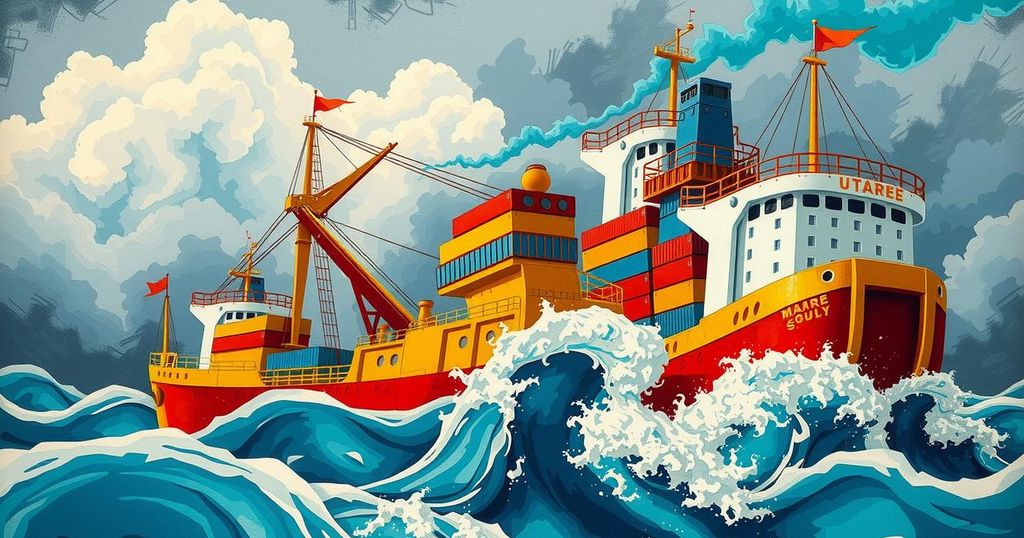Trump’s Trade War: A Misguided Fight Against China

Trump’s trade war with China showcases his belief in a U.S. advantage, but high tariffs and China’s retaliation might lead to a difficult economic standoff. While Trump insists that America will triumph, analysts express concern over the repercussions and broader geopolitical dynamics at play.
President Donald Trump has consistently adjusted the approach he takes in his trade confrontation with China. A recurring theme in his strategy is a strong belief that America can outlast China in a battle of economic pain. Trump holds to the view that previous American administrations allowed China to erode jobs and industries in the U.S. due to what he describes as a mix of naivety and greed. He insists that once tariffs on Chinese products take effect, it will lead to a rebalancing of trade flows.
Despite Trump’s optimism, many analysts are concerned about the hefty tariffs that China has imposed on American goods as a response. His aides are downplaying these tariffs, asserting that China will eventually buckle under the pressure. Scott Bessent, the U.S. Treasury Secretary, expressed confidence when he recently noted that, “I believe it’s up to China to de-escalate because they sell five times more to us than we sell to them.” This perspective suggests that America holds a stronger bargaining position in the eyes of some officials.
Meanwhile, the rhetoric surrounding the trade war continues to evolve. Issues beyond tariffs are coming to light, such as the heightened geopolitical tensions in various regions. For instance, certain countries are reintroducing previously banned weapons systems as a deterrent, signaling deeper complexities in international relations. Furthermore, the U.S. is ramping up offensive actions against jihadist groups, echoing sentiments reminiscent of the post-9/11 era.
In other global affairs, discussions are emerging regarding the environmental implications of plastics, which many once thought harmful, now seem less detrimental if managed properly. The desire to improve waste management practices is becoming a prominent part of international dialogues, as countries worry about sustainability. Nonetheless, even amidst these pressing issues, the spotlight remains on Trump’s trade war with China as it continues to unfold.
In summary, President Trump’s approach to trade with China reveals a confident yet precarious stance. His belief that tariffs will lead to a favorable outcome for the U.S. is paired with concerns about China’s retaliatory measures. The evolving narrative of the trade war reflects broader geopolitical issues and economic strategies, leaving analysts watching closely to see how this battle unfolds. Meanwhile, other global challenges regarding weapon reintroductions and environmental concerns are shaping the international landscape, further complicating the scenario.
Original Source: www.economist.com







